The Modulo ABS is very critical from the design point of view since the Anti-lock Braking System, ABS, has become one of the most important automotive safety systems in modern vehicles. I will first give you a detailed description of the Modulo ABS. Let’s take the example of virtual systems. ABS helps control slips and prevents the wheel from locking during braking, thus significantly improving the vehicle’s stability and control over the driver. This focus is particularly relevant for automotive practitioners and enthusiasts as it helps them deconstruct the engineering behind these control modules and their recent development. This article, however, auto brakes on a technical note and blends well with the understanding of this system in a car, which further allows a reader to appreciate how important this technology is in modern vehicles.
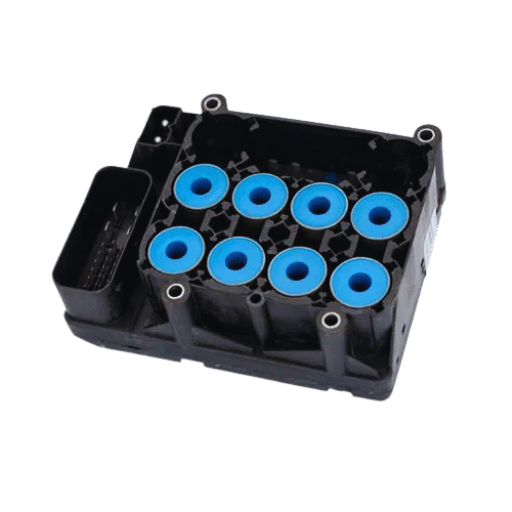
A vital element of the Anti-lock Braking System is the ABS control module, which prevents the wheels from locking up by controlling the brake pressure applied to each wheel. It receives data from speed sensors on each wheel and, based on this information, modulates the amount of braking force applied. The module also actuates a set of solenoid valves modulating the hydraulic pressure in the braking system. This perpetual controlling action forces the vehicle to perform optimally by avoiding excessive slips on the wheels that would make the vehicle uncontrollable even with powerful brakes. The working of the ABS control module makes it possible for the car to be accelerated, decelerated, and cornered, significantly improving the car’s safety through increased survivable stopping distances corrected by effectively steerable aircraft.
An ABS control module is implemented to monitor components called wheel speed sensors, which receive data about vehicle acceleration. Steady-state analysis of the data helps him picture the case when loss of traction, specifically wheel lock, becomes imminent due to braking action. When conditions are met, the module actuates a series of valves within the cylinder manifold that control fluid pressure in the affected wheel. Therefore, the revolutions per minute of the wheels are determined, and to enhance this gripping system, the contraption controls and balances the fluid pressure mechanically. Given the critical role of an ABS control module, it enables a driver to steer and control an automobile even in its braking stages, which is especially useful in increasing safety. With its technology, the module combats prolonged braking by assisting the driver remotely, thus maintaining the best optimal positioning of the vehicle during an emergency.
When looking closely at the crucial parts of the total ABS module system, it is apparent that there are three basic components: the electronic controlling unit, the hydraulic modulator, and the wheel speed sensors. The ABS communicates with the other components through the ECU, which interprets data regarding the rotational velocity of the wheels and makes decisions depending on the brake force applied to minimize the chances of wheel lock during the braking process. The hydraulic modulator, which has, among other devices, solenoid valves, transmits information to the individual brakes to release brake pressure so that the wheels don’t stop rotating. Wheel speed sensors are essential in these systems as they provide the ECU with the accurate velocity of each wheel. In conclusion, these units interact to facilitate the proper function of the anti-lock braking system, which is critical in maintaining control of motor vehicles during moments of extreme brake application.
The information below provides a general insight into the common problems with ABS control units and their possible remedies.
Estas soluciones subrayan la necesidad de buscar el mantenimiento y reparación de los módulos de control del ABS a tiempo, así uang iltendo vehicular segurita at sa ilang mga pagsisikap.
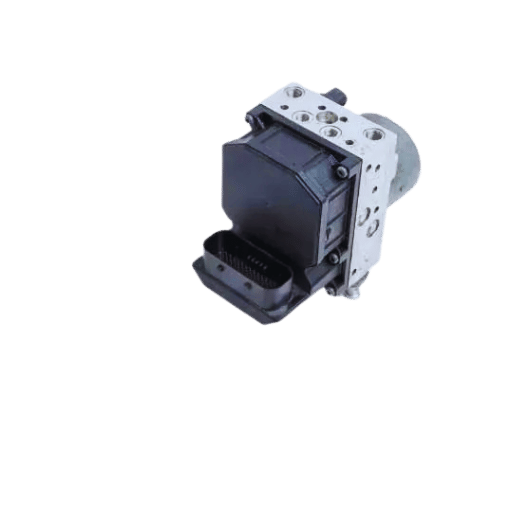
To pinpoint a faulty ABS control module, the technician needs to look out for specific signs indicative of dysfunctions within the system. The vehicle’s dashboard showing an ABS light is the foremost indicator that something could be wrong. A further symptom includes a vibrating brake pedal’s abnormal or irregular feeling during an otherwise smooth braking sequence. If the brake pedal appears malfunctioning, strange sounds, such as grinding noises while the brakes are engaged, can also serve as additional audible alerts. Moreover, if the stopping distances increase or the traction control becomes inactive during effortless driving, these issues signify the malfunctioning of the ABS control module. For the upkeep and optimized vehicle performance, frequent diagnosis and routine check-ups should be done to rectify the abovementioned issues.
My first step is to visually inspect the ABS module and its components, including wiring harnesses, connectors, and other related components for breakage and wear. As a next step, I searched the ECU memory to retrieve DTCs; this process can help focus on the areas of the fault. As often, I double-check the information against the vehicle service manual. Furthermore, I am able to provide and verify the conditions of the brake fluid, which is one of the possible causes of the problem if it is either lacking or contaminated. Finally, when the failures are more complicated, it may be time to contact a specialist with more supporting techniques and equipment for precise fault finding and rectification.
In evaluating remanufactured ABS control modules, cost and integration with the vehicle system already in place are the first two priorities. This option becomes more realistic whenever the OEM module can no longer be serviced or when working with cost-prohibitive vehicles. Such modules are also tested and refurbished to perform reliably and be up to standard or even higher than OEM specifications. Also, the remaining modules may be the only option in obsolescent vehicles with no more available parts. It is essential to avoid risks while selecting any remanufactured service part and looking for a warranty to alleviate the chances of malfunctioning, thereby permitting the vehicle’s safe operation.
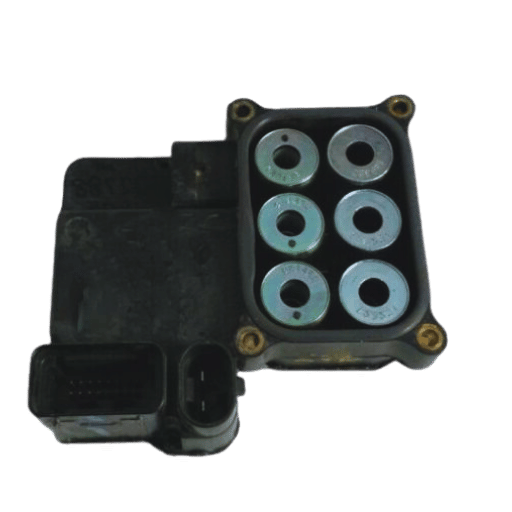
To preserve the safety and functional parameters of a quantum brake system fitted with an ABS, it is essential to ensure that the module is appropriately mounted and installed. Faulty installation of the brake ABS unit may result in improper brake system operation, which might increase the risk of accidents when the vehicle is used on highways. The module’s calibration should be precise enough for the car to give feedback and action to the other vehicle systems that the module interacts with and interfaces. In addition, incorrect installation would cancel any warranties issued by the manufacturer and lead to costly repairs. In this regard, the installation of a vehicle component should always be carried out in line with the manufacturer’s instructions on the vehicle’s service manual or in consultation with a qualified expert.
There are many factors to evaluate when using a professional complex or installing an ABS module independently. By using professional services, there is an assurance of expertise and experience, which guarantees that everything is installed and calibrated as needed. This reduces errors and safety threats using special tools and diagnostic means that someone on a DIY approach may not possess. On the other hand, if someone has enough mechanical skill and proper tools, they can do a decent ABS module installation, for the cost of professional installation is quite substantial. There is, of course, a need for proper concentration and reading the car’s service manual correctly, since if not done properly, it could lead to issues that might compromise the safety and functionality of the vehicle. Ultimately, decisions should be made solely on a person’s technical ability, what they would like to achieve on a task, and how much equipment they possess.
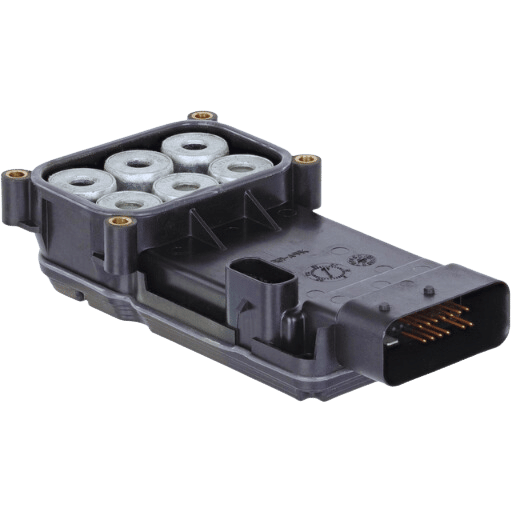
Reputable brands are always the best option when purchasing ABS control modules due to the widespread level of reliability and performance associated with them. An excellent example of such manufacturers are experts in auto safety technology Bosch, ACDelco, and Continental. Bosch is a universal automotive solutions company, and they are known for their ABS modules which are precise and durable therefore, the ABS modules by them are among the best ones. ACDelco is a division of General Motors, and ACDelco manufactures optimal quality components aimed to increase the functionality of the General Motors cars. Another known brand is Continental; they manufacture advanced Anti-lock braking systems that contain some of the most innovative technologies to enhance the safety of braking systems. These brands are ideal for use on braking systems as they have been highly tested and are of good quality.
The best prices can be secured using various strategies while shopping for ABS control modules online, including sorting by price and looking for free shipping. A good starting point, in this case, would be looking at well-known auto parts dealers like RockAuto, AutoZone, or Amazon since comparing prices and reviews on such sites is usually uncomplicated. Apply the filters available on these platforms to locate the correct modules that suit the specifications of your vehicles. Furthermore, you can subscribe to newsletters or set price alerts to inform you of bargains or promos available. Furthermore, such manufacturers’ websites may offer authentic units together with guarantees. In conclusion, don’t hesitate to check other websites that deal with cars, such as forums or community pages, for current offers and reviews of specific products from users.
Note that scanners can be somewhat costly, so compare offers and prices for ABS modules as much as possible. As a first step, outline the prices for various outlets such as RockAuto, AutoZone, and the like, which operate with a relatively large number of auto spares. Analyze them for other selling points like free shipping, extended warranties, or return policies. Another strategy you will probably not miss is those retailers who allow free shipping or discounts when they purchase other parts of the vehicle together with their offers. In addition, check whether the module is covered by the OEM or the selling store’s warranty, as this can benefit you during phone call support. Review reviews can also provide knowledge of the modules, their physical appearance, and performance, which will help you make a more reasonable decision.

The importance of an Anti-lock Braking System (ABS) in the safe operation of vehicles cannot be overemphasized, as it prevents the locking of vehicle wheels during emergency brake actions. This functionality allows the driver to avoid skidding and colliding by steering the car, even in emergencies. An essential aspect of this technology is to rapidly, yet intermittently, apply brake pressure such that while braking, the wheel continues to spin in the ‘decelerating’ phase, ensuring traction. This criterion is often essential on low friction surfaces such as wet or ice-affected roadways where a conventional braking approach usually renders the vehicle uncontrollable. In this way, in addition to increasing the stopping power, ABS also improves the control and stability of cars and the protection of the occupants.
ABS improves braking control in inclement weather by preventing excessive use of the brake pedal, which results in loss of traction or wheel lock-up. When driving or braking on an adverse surface such as snow, the system takes over some control and manages slip, allowing for easier turning. By increasing longitudinal stability, ABS improves the vehicle’s performance in such maneuvers and reduces the required stopping distance, especially on wet or frozen surfaces. This better control especially means that the driver can still steer the vehicle in the desired path and adjust to the destination even if the brakes are used in bad weather conditions.
Testimonial 1: Improved protection during rain
A commuter named Jessica was traveling when rain suddenly started pouring heavily on the highway. She stated, “The roads were very slippery, and just as I started applying brakes, I could feel the ABS starting to work. This allowed me to control the steering wheel, which prevented an accident that looked likely. The system ensured that I was safe throughout the incident.”
Testimonial 2: Better handling on slippery roads
Michael, who lives in a winter-prone area, recalls the hassle he faced, saying, “Driving on ice is probably the most stressful thing. But thanks to the ABS, I noticed that my car didn’t skid as much when I suddenly applied the brakes. This system has helped me feel secure enough to drive through slippery roads without fearing losing control every minute.”
Testimonial 3: Able to brake confidently in emergencies
Emily experienced another throttle on the road and said, “I instinctively stepped on the gas while driving, and a deer jumped in front of my car. As I reacted, I pressed the brakes, and my car maintained its trajectory due to ABS. Because of that, I could steer away and miss the crash, which I feel would not have been the case without ABS.”
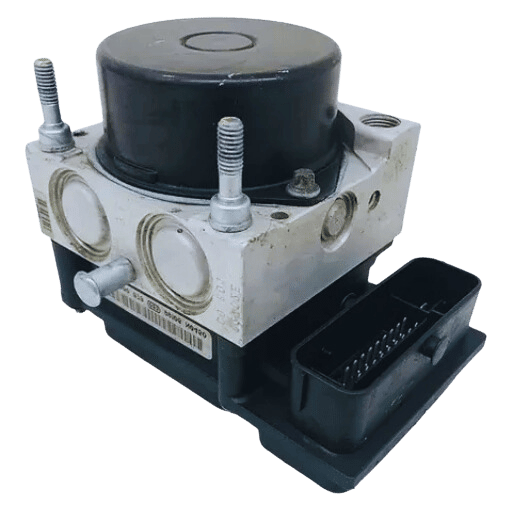
A: A Modulo ABS control module is an integral component of the anti-lock brake system. The electronic brain receives input from the wheel speed sensors and manages the ABS pump to prevent the wheel from rotating in the direction of the lock-up during hard braking. This module prevents the sideways movement of a vehicle due to instability in case of sudden brake application.
A: To find the correct ABS control module, you must first know the make, model, and year of the car. Many online auto parts stores allow you to enter this information to find compatible parts. Alternatively, you may search using your car’s VIN for more precise results. Also, make sure the ABS Control Module is suitable for the anti-lock brakes in your vehicle.
A: Cardone is a name that has cropped up in terms of aftermarket parts, and their remanufactured anti-lock brake ABS control units seem to be good enough. These reconstructed units are built in such a way as to have a structure of sufficient quality to meet or go over that of the OE standard, meaning they will work as well or better than the original. Nonetheless, it is always prudent to peruse through reviews and ascertain that the part is manufactured for the specific model of the vehicle in question to be used before buying.
A: The sensor data is collected, and the commands to the ABS are sent through an electronic control device, an ABS control module. The part of the system with the pump and valves necessary for controlling brake pressure is the ABS hydraulic assembly unit. Depending on the vehicle, some have these parts already assembled. In contrast, others use them individually, and others integrate them into a single unit called an ABS hydraulic control unit.
A: If the ABS control module has to be replaced, it will likely be due to the following symptoms or conditions. 1. The warning indicator is on, and malfunctions are noted. 2. When the ABS is engaged, The brake pedal behaves erratically. 3. One or more stability control features are deactivated. 4. There is loss of control of the vehicle during hard braking where there is a tendency to skid, or the brakes commence locking even if they’re not applied to their fullest cipher. It’s best to consult a specialist if any of these are present.
A: Dorman and Mopar are among the best brands in the automotive parts industry. Mopar is the OEM parts brand for Chrysler, Dodge, Jeep, and Ram, which means their parts are structurally adequate. On the other hand, Dorman deals with aftermarket parts and usually has many cheaper options that meet Ford’s OEM requirements. Which of the two you end up with usually depends on how much money you want to spend and your preference for aftermarket or OEM parts.
A: Although you may be able to install an ABS control module yourself if you have a background in automotive repair, it’s better to go for professional services. The installation often requires some specific elements and even knowledge, and such proper installation can compromise the vehicle’s safety. Moreover, several ABS modules must be coded into your car after installation, requiring special equipment and training.
A: EBCM stands for Electronic Brake Control Module. It is also known as the ABS control unit, emphasizing its use in General Motors (GM) vehicles. The EBCM controls not only the anti-lock brake system but, most of the time, several other safety features, such as traction control and even stability control systems.
A: Most auto parts selling online shops have a Vehicle Purchase Information or Choose Vehicle tab on the main register page. Usually, the ones who do this enter the car’s brand, model, year of manufacture, and sometimes, the size of the engine or trim level. Other websites also let you provide your Vehicle Identification Number (VIN) for better-fitting products. Always remember to check on the compatibility first before getting the part to make sure it fits your car.